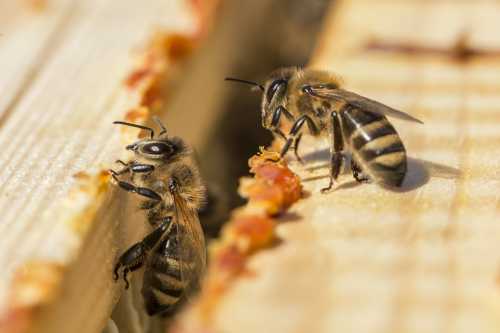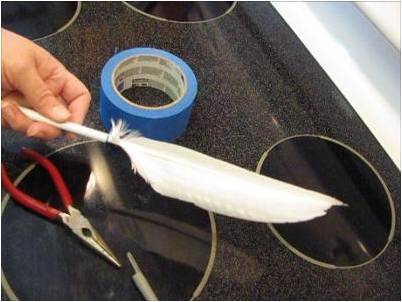Bee Keeping Equipment
Some beekeepers spend a lot of money on bee keeping equipment, whilst others improvise and make do with only essential items.
Here is a list of items you may like to equip yourself with, if you are beginning beekeeping:
Smoker
I have written about this elsewhere on my site - see smoker. This is an expensive piece of bee keeping equipment.
You can burn natural materials inside the smoker, including pine cones and dried grass. Avoid items laden with chemicals.
Just a few wisps of smoke are blown in front of the hive, and this alerts the guard bees. After a short while, the roof of the hive is lifted, and a further gentle puff of smoke is blown into the hive.
You could also experiment with powdered sugar (icing sugar if you are in the UK) in a puffer as an alternative to the smoker.
Queen Cage
This is used if it is necessary to
introduce a new queen to the colony. Introducing a new queen can be
risky – there is no guarantee the colony will accept her.
The cage enables the bees to lick the new queen, and get to know her, whilst protecting her from harm.
After a while, the queen’s pheromones are passed around the colony, and the bees begin to accept her as their own. After a few days, you can release the queen, or allow the bees to release her by chewing through the paper that has been used to plug the end of the cage.
Hive Tool
A very handy piece of bee keeping equipment is the hive tool. There are two types of hive tool, both of which are scrapers, (one which is J-shaped, the other being curved).

They are
used for scraping away comb cells and queen cells, but you may also use
it for helping you to separate and lift frames, especially when 'glued up' with propolis.
Bee Brush
Why
not an ordinary brush? A bee brush has soft long bristles, enabling
you to brush away bees gently, without causing them harm - however, you can make your own bee brush.

Open Mesh Floor (OMF)
Many
hives have this built in, but otherwise, it is possible to purchase
them separately, and replace traditional wooden floors with the OMF.
An Open Mesh Floor is very useful for helping to protect the bees from Varroa mite.
Icing sugar may be used to encourage the mites to fall off the worker bees, and through the mesh floor.
Solid floors can allow mites to crawl back up the walls of the hive. Read more about the different types of honey bee hives.
Take a look at these free
bee hive plans.
Bee Paint
This is used to mark the queen, and is a brightly colored paint that enables you to spot her among the thousands of other bees.
Mouse Guard
Mice
can squeeze through the tiny entrance space of a hive, destroy honey
comb and eat the honey reserves in no time at all. Mouse guards are
designed to fit over the hive entrance, blocking the mice from entering
the hive.
Clothing
In addition to your bee
keeping equipment you will need protective clothing - a beekeeping suit. There are a number
of options for clothing.
Also:
- Budget Option
Wear your own thick protective clothing, taking care to ensure the skin is fully covered. Use disposable latex gloves, which some beekeepers prefer in any case, for hygiene purposes around the hive.
Purchase an over-head veil or vest, incorporating; or a beekeeping hat and veil.
You can add to your beekeeping clothing as and when you see fit.
Add a beekeeping jacket to the above, or a smock. Separate trousers can also be purchased.
- Full Beekeeping Kit
All in one beekeeping suits with built in veils help to prevent bees congregating in folds. They provide the fullest protection from bee stings.
Recommended books
It's a good idea to read a few books and gain different perspectives. See my list of recommended beekeeping books.